Video games today are no longer part of the entertainment industry. They’re a new industry, yet one as old as history — the Myth Industry. Games are about greatness. In games, we can become world-saving heroes. In fact, it’s assumed that we will be. It is the very structure of games to place each player into the role of the central hero in myth.
“Who are you not to be great?”
“You,” continues the dapper Malcolm McDowell look-alike narrator from a recent Sony’s PlayStation commercial. “With the imagination of a brilliant child and the powers of an ancient god.” He saunters casually from the wreckage of a car crash onto the streets of a city mid-apocalypse. By now, global ruin should be more familiar to gamers than a snow level or a lava temple. “Who are you to be ordinary?”
What is this? I thought, seeing the commercial for the first time last week at work (I produce trailers for video games). I know this. My mind raced back to elementary school and the image of Apollo on the cover of d’Aulaires’ book of Greek mythology. I remember pouring over those simple coloured-pencil drawings of gods and goddesses as if they were windows into a lush fantasy world.
Listening to my purple-suited host, that same feeling arose again. Which shouldn’t have been the case. This is a modern technology ad. I mean, he’s talking about video games, but his language feels timeless. It felt as if the contemporary world of interactive entertainment was folding itself onto something ageless. Such a clash of worlds felt disruptive. And what does he mean, comparing me to both a child and a god? What is he invoking?
“Who are you to be anonymous? You, whose name should be spoken in reverent tones, or in terrified whispers.”
PlayStation guy speaks of sacred things. But why do they feel familiar? As if his words describe Theseus killing the Minotaur or Icarus flying too close to the sun? Maybe, it’s because he taps into feelings as old as my childhood memories. Those iconic images we blindly carry like a shared dream, like the shapes our fathers once drew in the night sky. I know this, I thought.
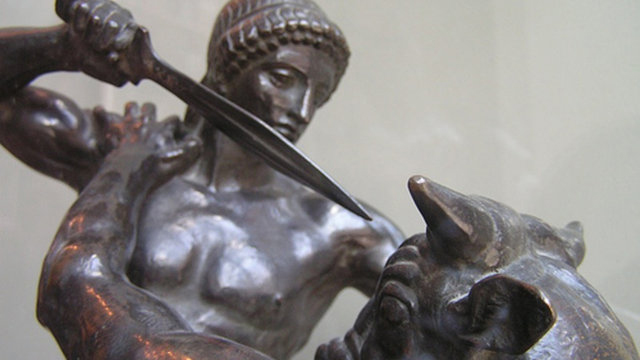
This is the language of myth. And we are its heroes.
But what’s a hero? Let me take a step back and introduce you to Joseph Campbell, author of The Hero with a Thousand Faces, scholar of world mythology and all around spiritual badass. Some of you may have heard of him. Campbell doesn’t just write about ancient heroes, but is a champion of each individual’s personal journey. He sees the potential all humans have, within themselves, to become heroes.
He writes, “The hero is symbolical of that divine creative and redemptive image which is hidden within us all, only waiting to be known and rendered into life” (31). Don’t we all wear the triforce of courage? Haven’t we all fought necromorphs? According to Campbell, each of us, deep inside, carries a certain productive force capable of renewing the entire world, that you and I can change things for the better.
We’re all familiar with the hero’s journey. It’s in everything from the Bible to Star Wars. And it begins with an ordinary human just like you.
You live in a small village with common concerns, minding your own business. Suddenly something happens and adventure calls. You are met by a guardian of the threshold, whom you must defeat or join to proceed. Leaving the familiar far behind, you journey into the great unknown.
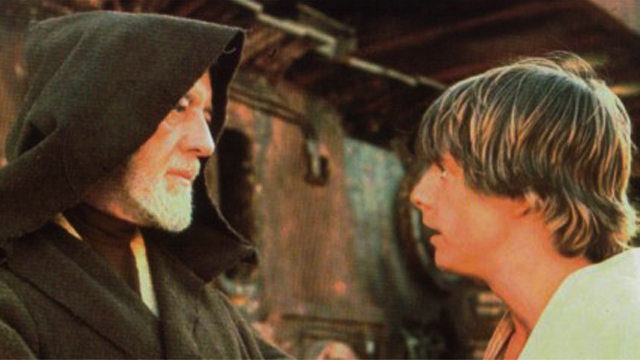
You explore a new world filled with strange forces, some malicious, some helpful. At the zenith of your trials you face the ultimate villain, requiring you to tap into the deepest reservoirs of your strength. You win the battle and become the hero. Only then can you re-cross the threshold and bring what you’ve learned back to your village. New yourself, you bring newness to the old world, like spring does to winter, renewing all things.
“Who are you to be afraid?”
All adventures must have a beginning. Traversing the known to the unknown requires you to cross an important threshold: fear. Doing this takes both personal courage and a little help from your friends.
The mythological trope of the “threshold guardian” traces its course through ancient myth and modern games alike. In the words of Campbell, this guardian represents “the benign, protecting power of destiny” (59). These figures stand at the horizon of life, with hand outstretched, inviting us to achieve something greater.
In Dante’s “Inferno,” it’s the poet Virgil who waits at the entrance to hell and acts as Dante’s guide through the underworld, eventually leading him to the gates of heaven. The same can be said about Obi-Wan. He leads Luke from his small life on Tatooine to a galaxy-wide adventure. In Bioshock Infinite, the Lutece twins are both the guardians to Columbia and the subtle guides of Booker’s destiny. In Dead Space, Isaac Clarke is spurred on by his dead wife, haunting him and driving him in equal measure. And for Link, there is always Navi.
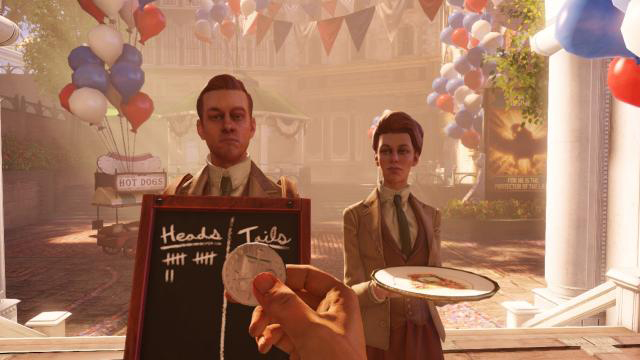
These threshold guardians are liminal characters — they guide us through our fear, transitioning us from who we were to who we will become. They introduce us to new game mechanics and lead us, both the player and the character, through beautiful and terrifying new worlds. They are the mentors of our fate. Whether our teachers in real life or characters from fiction, these guardians stem from a vast mythological tradition, leading us, the gamer, into the future.
“Who are you to be a slave to the past?”
Whether we think of ourselves as Commander Shepherd or Booker DeWitt, we carry the archetypes for world-changing greatness within each of us. We have our own threshold guardians who have given us the knowledge and the tools to press forward into the unknown.
We’ve fought our own boss battles, whether we experienced it like Perseus from classical myth, cutting the head off Medusa, or imagined it like Mario, jumping three times on Bowser’s head. These images have been inherited by time, passed down from story to story, and gathered in our psyches as a vast collective unconscious.
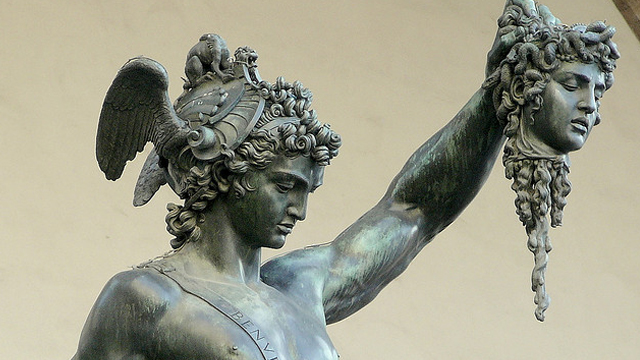
Yet, instead of sitting back and listening to heroic stories around a campfire, dreaming of greatness, video games let us become the hero of myth and experience this greatness ourselves. Unlike, say, the novel or cinema, games are in a unique position to deliver an immersive experience. In games, we make the choices. In games, we are directly responsible. No longer mere empathy, we have become heroes ourselves.
This element of personal experience is essential. Our lives are steeped in personal anxieties and hopes, all stemming from our own personal journeys. Myths are archetypal for this exact reason — they follow the emotional course of a universal human cycle: we are children, we have parents, we rebel, we grow up, we become ourselves, we merge with a partner, our parents die, we have children of our own, they rebel, they grow up, and then, someday, we die.
To realise the profound impact stories have on our lives helps us become aware of our own place in the human cycle. I often feel like Commander Shepard because life is only surmountable when those I trust surround me. We can’t save the world alone. I feel like Link because I’ve got a lot to learn before I’m ready to love. Saving the princess from Gannon is a battle with personal demons. I feel like Ezio because family drama often plays its course across time like a war between Templars and Assassins. I can only hope I’m as charming in the process. And I feel like Booker DeWitt because the fight to understand our place in the world often comes in the form of earth-shattering realisations. To understand myth, in this way, is to know one’s self. The battle to become who we are is a battle for our lives.
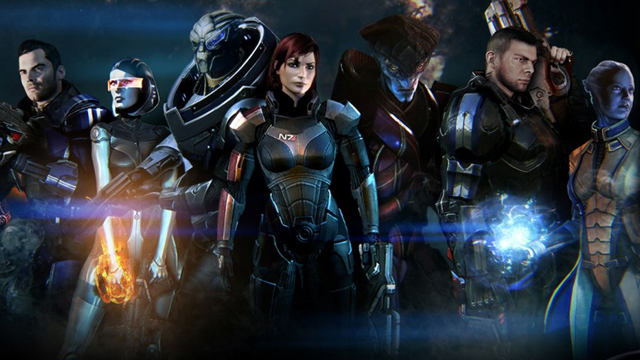
And we are not alone. Campbell writes, “The heroes of all time have gone before us; the labyrinth is thoroughly known; we have only to follow the thread of the hero-path. And where we had thought to find an abomination, we shall find a god; where we had thought to slay another, we shall slay ourselves; where we had thought to travel outward, we shall come to the center of our own existence; where we had thought to be alone, we shall be with all the world” (18).
The titan Prometheus steals the gift of fire from the gods not for himself, but for all of humanity. The Buddha does not die after reaching nirvana, but returns to the plane of man to teach a new way of being. Commander Shepherd, in one possible ending, (spoilers) sacrifices himself so that man and machine may merge, creating a brave new world. After the final battle is over, and the bosses have been defeated, the transformations we’ve discovered must be shared. This is the purpose of both myth and games: personal experience for the sake of collective progress.
Because that’s all that the hero’s journey is, in the end — an inward journey of spiritual growth. Our role as humans becomes literalized in video games: our anxieties become zombies, our courage becomes magic, and our lives become a world that needs to be saved. Video games give us the physical space to live out these internal realities, and the opportunity to do it ourselves. Changing our own lives and becoming who we are can feel as huge as changing the entire world.
“Who are you to deny greatness?”
…our hero asks while unbuttoning his suit jacket, now flanked by a band of misfits. “If you would deny it to yourself, you would deny it to the entire world.” He emerges onto a vast battlefield full of dragons and spaceships. With a yell, our hero raises his arms in fiero, the universal sign of triumph over adversity.
“And we will not be denied.”
Top image from Shutterstock
Paul Wallace is a writer and artist from Baltimore living in Los Angeles, where he works as a video game trailer producer for The Ant Farm.
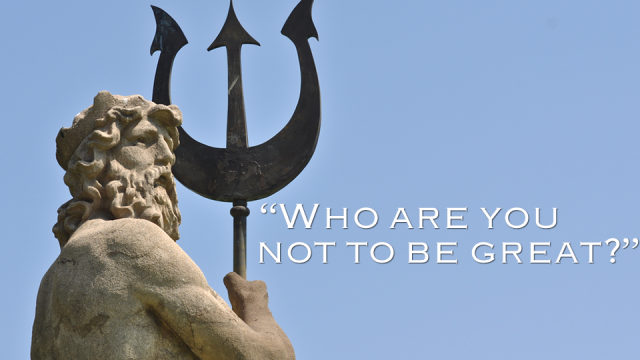
Comments
6 responses to “What Video Games Actually Sell: Greatness”
Well i think the ‘greatness awaits’ ad is brilliant, for me when i first watched it, it gave me the sort of feeling that was just like saying “screw what other may say about games, it’s their loss that they will never understand what games are really about”
This article has made me think more about video game stories and characters. Hopefully that will be reflected onto my upcoming game.
Great article.
that mass Effect picture….oh god the feels
“The Hero with 1000 Faces” is a formula for boilerplate hollywood blockbusters exploiting allegorical Jungian mythic tropes. Does not extend to video games where a world is created in front of you and in your mind in perfect parallel.
I would argue there is more empathy and immersion, feeling you are experiencing being the protagonist in books than games. Games are almost purely literal.
Nice article! I got NONE of that out of the ad. I watched it for a few seconds, wondered where he was going with it, realized where he was going with it, then went, “Heh, cute,” at the imagery, and thought nothing more of it. 🙂